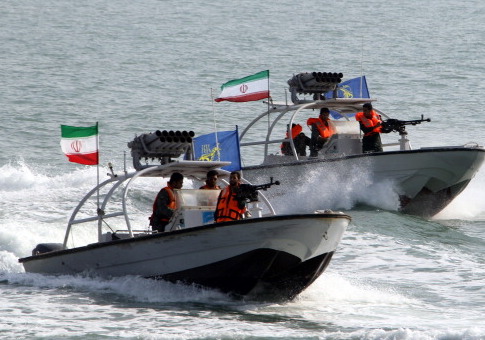In a welcome but "baffling" development, Iranian "fast boats" have ceased the harassment of U.S. Navy ships in the Persian Gulf since August 2017, according to a Friday report.
For two years, it was routine for smaller Iranian craft, typically armed with .50 caliber machine guns and rocket launchers, to sail rapidly towards U.S. Navy vessels passing through the gulf, the Wall Street Journal reported. Now, the U.S. military reports that behavior has ceased.
Army General Joseph Votel said he hoped the harassment would end permanently.
"I hope it's because we have messaged our readiness," Votel told reporters. "It isn't tolerable or how professional militaries operate."
The Iranian ships would usually come within shooting distance of U.S. ships, occasionally shining spotlights at the crew of aircraft and navy vessels.
The practice was risky for Iran, as a mistake on the part of the Iranians could have resulted in an international incident. And there were close calls.
In July of 2017, a U.S. patrol ship fired warning shots at an Iranian patrol boat that was less than 150 yards away, CNN reported. The ship had not responded to radio calls or flares that the USS Thunderbolt sent prior to opening fire.
A year and a half prior, ten sailors on two U.S. patrol boats were taken into custody by the Iranian military. Iran claimed the U.S. boats boats had come within two kilometers of the shore, entering Iranian territory. Nine officers and sailors involved were eventually disciplined by the navy for their role in the incident.
There were 14 unsafe interactions with the Iranian navy in 2017, all occurring before the harassment ended abruptly in August. In 2016, there were 36 such incidents.
General Votel said the ceasing of these incidents did not necessarily signal a grander "strategic shift" on Iran's part, but rather, Iran's strategy needed to be taken in "totality."
Commander Bill Urban, a spokesman for the U.S. Navy's Fifth Fleet, said he was not going to speculate about the move, but that he was hopeful the "positive trend in interactions" would continue in the future.
